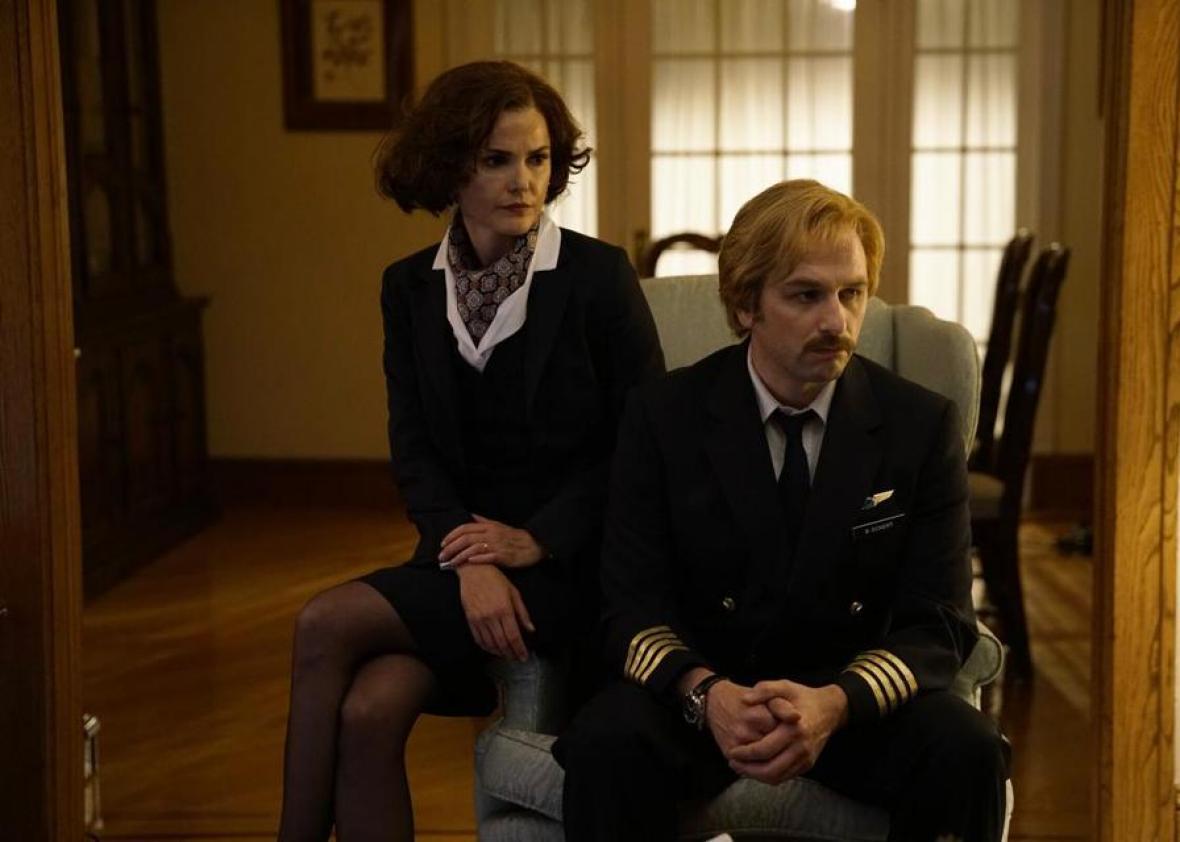Critics have found a new reason for audiences to check out FX’s low-rated critical darling The Americans, the Reagan-era Soviet spy saga that returns for its fifth season on Tuesday. “In the Trump Era, FX’s The Americans Gets More Fraught,” reads a new Boston Globe headline. Ray Rahman’s rave for Entertainment Weekly asks, “If there was ever a time to start watching a show about Russian spies undermining American interests, wouldn’t it be now?” And Deadline’s review of the new season begins, “With rumors of Russian involvement in American politics dominating the news again today, the excellent penultimate season of The Americans feels chillingly much closer to the bone than last year.”
It’s an easy connection to make. Critics are agreed that The Americans—whose fourth season won Best Drama Series prizes from the Writers Guild of America and the Television Critics Association and was widely considered to be the best returning show of the year—is as good as ever heading into its penultimate stretch. Yet despite its continued acclaim, the show has struggled to attract a large, consistent fanbase. Beginning at the annual TCA winter tour in January, the press drummed a new narrative to bolster the show’s relevance for nonviewers: With all of this talk of intelligence leaks and secret meetings with Russian officials, The Americans is the show that best captures the current political moment.
Only: Is it? While The Americans features plenty of geopolitical intrigue and wild disguises (those wigs!), the show has increasingly leaned into the realm of domestic drama, intimately capturing family dynamics as they’re frayed by opposing allegiances, ideologies, and worldviews. When it does pose grand, thorny questions about patriotism and nationalism, they’re always nuanced and empathetic in nature—executive producers Joe Weisberg and Joel Fields describe the initial conceit as “Hey, look, these people who we think of as enemies are really just like us!”—and they’re rarely if ever engaged in the more sinister side of human behavior and conflict. Weisberg, for his part, expressed dismay over the recent turn of real-world events: “To see things spiral so out of control, frankly, just doesn’t feel so good.”
Certainly, there’s a lot of paranoia surrounding our current political situation; the depth and nature of the relationship between the Trump administration and Russian intelligence officials remains a compelling, unnerving mystery. The Americans, taking place at the end of the Cold War and centered on Soviet spies, can certainly speak to those anxieties. But to call it a cynical, House of Cards–style deconstruction of Russian-American relations—one that reflects the current climate of cover-ups and deceptions—is misleading. The Americans almost operates in the opposite fashion, in fact: It digs into the personal lives of both sides, allowing us to get close even to the Russians heading up potentially devastating bioweapons programs.
If anything, The Americans makes the kind of call for restraint that can be unfathomable in times like these—to take a step back and remember we’re talking about complicated people and not just cartoonish villains. The show does reveal the brutality of the Soviet regime and the horrors of systems without due process—indicators that take on a “newly intense dystopian quality,” as the Globe’s Matthew Gilbert put it, in the new season. But it’s important we don’t come away with the wrong lessons, with the familiar “America good, Russia bad” dichotomy. The Americans makes a powerful, universal argument for understanding, one whose resonance extends far beyond our government’s relationship with a foreign power. It’s that humanistic touch that makes for such rich, surprising, layered storytelling. Rather than box this great show into a space in which it doesn’t belong—the prescient cautionary tale—it’s worth remembering that The Americans’ worth transcends the politics of the moment.
Disclosure: Joe Weisberg is the brother of Jacob Weisberg, editor in chief and chairman of The Slate Group.
